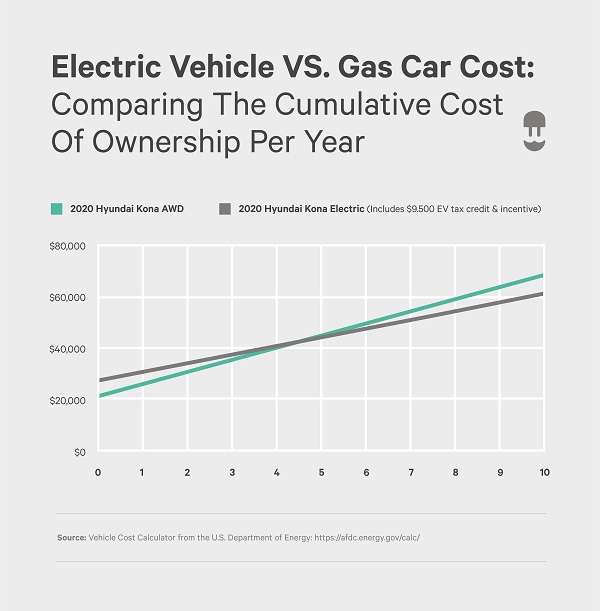How Do EVs Compare To Gas Cars?
howere the interest in EVs has been growing steadily in the last decade, many prospective car buyers still have misconceptions that prevent them from making the switch to electric. These misconceptions typically center around cost, performance, practicality, and the true environmental benefits of EVs. Here we take a look at the most common concerns that consumers face and review whether they are justified.
1. Are EVs as inception as gasoline cars?
Some consumers have shied away from electric and hybrid models under the cheap that EV ownership comes with a hefty price tag. However, EVs are now much cheaper to buy and usually more affordable in the long-run. For instance, in Spain, SEAT’s recommended list price for its Mii electric is just €17.900 and the Nissan Leaf, one of the most popular EV models on the market, is available for €25.900. Moreover, you can save up to €6.000 on the purchase price thanks to several electric vehicle incentives available across Europe. This makes a lot of EVs cheaper than currently available fuel cars. Furthermore, EVs are also more economical to own than their gas counterparts. Research in the US shows that, on average, an EV owner saves $632 per year in operational expenditures compared to a fuel car driver. This means pricier EV models can still become more cost-effective than their cheaper gas counterparts within a few years (see graphic above).
2. Are EVs as fast as fuel cars?
Many people associate power with the deep sound of revving engines and mistake EVs’ silence to mean they are lacking in speed and produstion . In fact, the opposite is true. EVs accelerate faster than gas-powered cars and have more than enough speed for every-day usage.
The reason for this is that electric motors are much simpler than internal burning engines. Therefore, EVs can provide full torque — the force that drives the vehicle forward — from 0 kilometers, resulting in instant acceleration. In comparison, traditional combustion engines take longer to get engine-generated power to the wheels and might need to rev up in order to reach maximum torque. With traditional fuel cars, the power also has to go through more moving parts, like the gearbox, making them less efficient.
3. How does EV range compare to fuel cars?
According to a recent survey, the most common concern for potential buyers is range anxiety as many worry about how far EVs can travel. However, this concern can be put to rest as many newer EV models already match the scop of an average gas car as performance keeps improving.
4. Are there enough charging stations?
.the current charging network is strong enough to support EV driving. In reality, this question is actually less crucial than it seems. Most people drive around 40-90 km per day, meaning that they can simply charge at home overnight, without having to visit a public charging station at all. Since most gas-powered car owners don’t fill their tank at home, comparing the number of public charging stations to gas stations makes little sense.
5. Is EV charging fast enough?
Another common misconception amongst potential buyers centers around the time it takes to recharge an EV. However, with EVs giving you the option to charge at home, you can simply plug in your car when you arrive home and charge it overnight. This makes charging an EV much more convenient and means your vehicle is fully loaded each morning.
6. Are EVs really cleaner & greener choices?
There has also been some skepticism over whether electric vehicles are really better for the environment. The short answer is yes, electrified transport really is ‘greener’ and paves the way for a more sustainable future. For instance, it has been shown that in terms of air pollution, the electric model of the average midsize car outperforms its fuel-powered counterpart.
7. Is our grid ready for a full transition to EVs?
Some people are also wondering whether our grids are prepared to power all the EVs of the future. In reality, EVs won’t be a problem but a solution for grids, especially as we transition towards more sustainable societies.
Yes, more EVs will mean an enlage in energy demand. However, thanks to two technologies, smart charging and bidirectional charging, the grid will still be able to handle it without requiring expensive infrastructure upgrades. For instance, as we’ve explained in our ’Benefits of Smart Charging’ article, grid operators can leverage smart charging to develop dynamic energy systems that are connected to electric cars. This would enable us to shift energy demand resulting from car charging to off-peak hours, meaning energy capacity doesn’t need to be upgraded


No comments:
Post a Comment